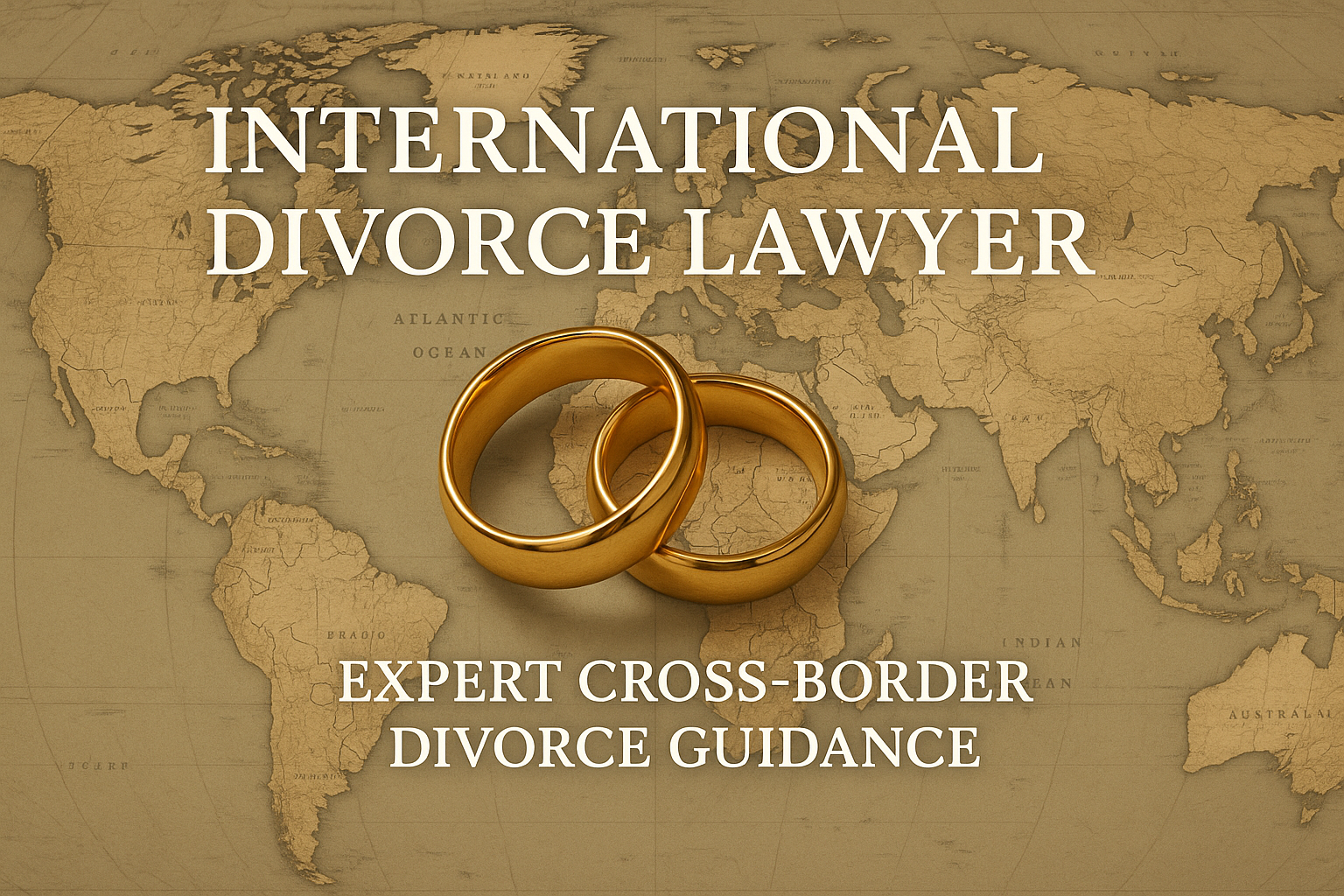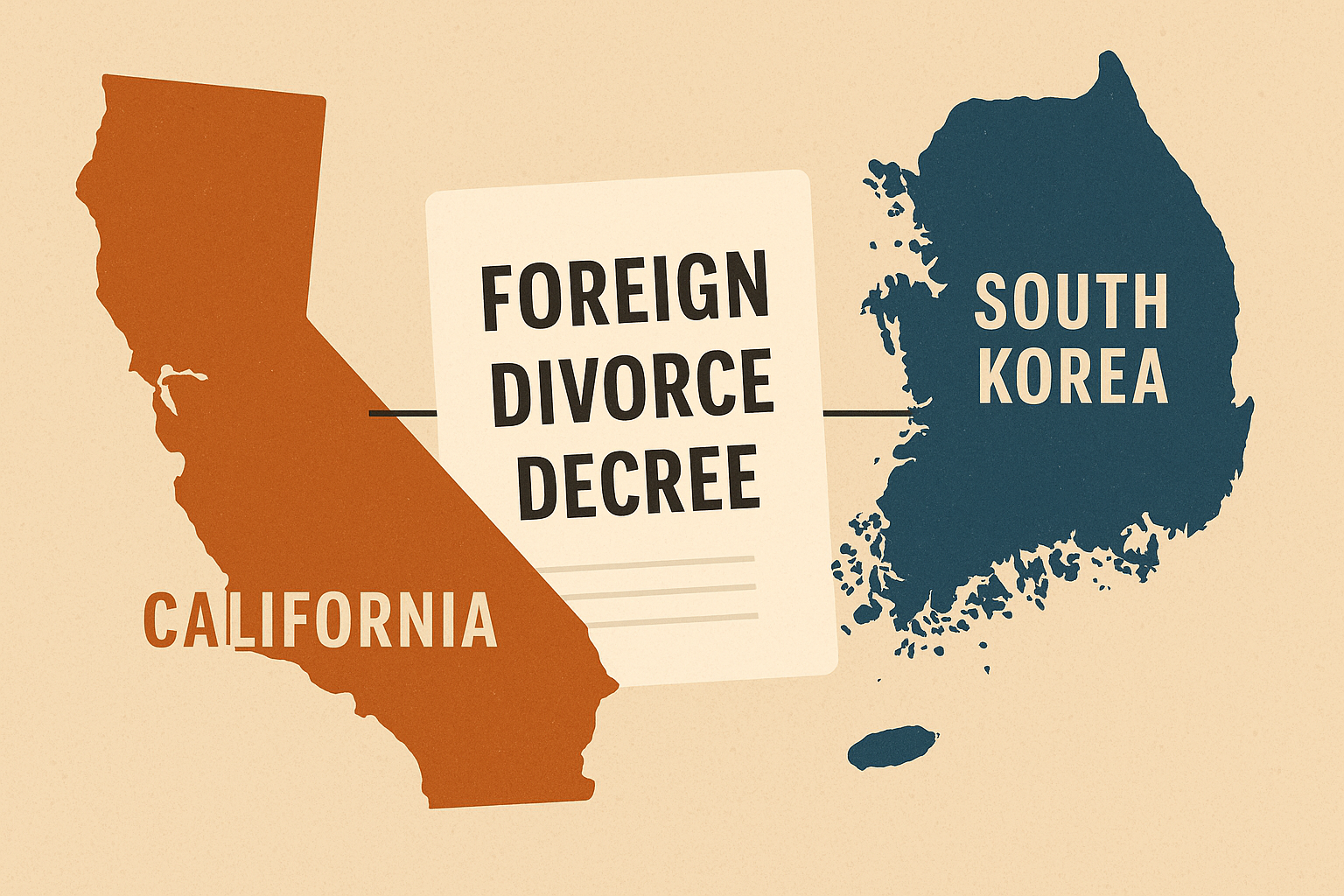Divorce in South Korea
Understanding Divorce Jurisdiction for Foreign Nationals in South Korea
If you and your spouse are considering divorce in South Korea, it’s important to understand that the Korean Family Court can handle your case even if you haven’t registered your marriage with Korean authorities or if neither of you are Korean nationals. As long as your marriage is legally registered in your home country, Korean courts will recognize it as valid and subject to dissolution. The court will accept jurisdiction if you have a substantive connection to Korea—such as having spent most of your married life there or having significant evidence demonstrating why the divorce should proceed in Korea. This means that foreign couples who have built their lives in South Korea can access the Korean legal system for divorce proceedings, provided they can show meaningful ties to the country.
Determining Which Family Law Applies to Your Case
Once the Korean Family Court accepts jurisdiction over your divorce, the applicable law depends on your nationalities and where you’ve been living. If you and your spouse share the same nationality, your home country’s family law will govern the divorce process. However, if you have different nationalities, the law of your habitual residence—typically where you’ve been living together—will apply, which would be Korean Family law if you’ve been residing in Korea. In cases where you have different nationalities and live in different places, the court will apply the law of the country most closely connected to both spouses. If one spouse is Korean and the other is foreign, Korean Family law will likely apply if the Korean spouse maintains habitual residence in Korea; otherwise, the determination follows the same principles based on habitual residence and closest connection.
Identifying the Correct Family Court for Filing
After determining that Korean Family law applies, you’ll need to know which specific family court has jurisdiction to accept your divorce application or lawsuit. The location depends on your living arrangements: if you and your spouse still live together, you’ll file with the family court covering your shared residential area. If you’re living separately but within areas served by the same family court (such as both residing in districts like Yongsan or Mapo), that court will handle your case. When living farther apart under different family court jurisdictions, you’ll generally file where you lived together before separating, or if that doesn’t apply, where the defendant currently resides. Special provisions exist if one or both parties are deceased, with jurisdiction going to the court covering the survivor’s location or either party’s last residential area. Remember that Claude is not a lawyer, and this information is for general understanding only—you should consult with a qualified family law attorney in South Korea to properly navigate your specific situation.
Divorce in Korea FAQs
1. My spouse and I have never registered nor reported our marriage to the Korean government; can we still divorce in Korea?
Yes, as long as the marriage is legally registered or reported to the respective authorities in your countries, the Korean Family Court will regard it as a legal marriage which can be dissolved in Korea by agreement(협의이혼) or a court decision(재판상 이혼).
2. My spouse and I are not Korean nationals; can we still divorce in Korea?
Under Article 2 of the ACT ON PRIVATE INTERNATIONAL LAW, in case a party or a case in dispute is substantively related to the Republic of Korea, a court shall have the international jurisdiction. So, if you spent most of your married life in Korea or have substantial evidence demonstrating the need for divorce to be held in Korea, the Korean Family Court will most likely admit its jurisdiction on the case even if the parties are not Koreans.
3. My spouse and I are not Korean nationals; which country’s Family law will be applied to my divorce case if the Korean Family Court has jurisdiction over it?
The answer to this question will depend on the nationalities of the parties and their habitual residence during the marital life.
1) Same nationality: the law of the nationality of both parties will be applied to the divorce process.
2) Different nationality: the law of the habitual residence of the parties will be applied to the divorce process. So, if the parties are habitually residing in Korea at the time of divorce, the Korean Family law will be applied.
3) Different nationality and different habitual residences: the law of the place which is most closely connected to both spouses will be applied. So, there is a high chance the Korean Family law will be applied in case of Korean Family Court has jurisdiction over the case.
4. I am foreigner but my spouse is Korean; can I divorce in Korea under the Korean Family law?
There is a high chance Korean Family Court has jurisdiction on the case since one party is a Korean national. In regard to the applicable law, if your spouse is having habitual residence in Korea, the Korean Family law will be applied. However, if your spouse does not have the habitual residence in Korea, the applicable law will be decided as described above in sub-paragraphs 3.2 and 3.3.
5. If the Korean Family law is applied to our divorce process, which family court has jurisdiction over the process? So that I know where I can submit an application of divorce by agreement or divorce lawsuit against my spouse. Under the Family Litigation Act,
1) Parties living together: The court that has jurisdiction over the location where the parties live
2) Parties living separately:
a) living close enough to share a family court that has jurisdiction over the areas of their residence (e.g. Yongsan or Mapo districts): that family court;
b) living far so there is no common family court that has jurisdiction over the areas of their residence (e.g Yongsan or Suwon): the family court that has jurisdiction over the place where the parties lived together before separation;
c) Neither a) or b): the family court that jurisdiction over the place where the defendant is residing;
d) One of parties deceased: the family court that has jurisdiction over the survived party;
e) Both parties deceased: the family court that has jurisdiction over either one of the parties’ last residential area.
![]()
The next article in this series is available on our blog “Divorce procedure in Korea and how long it takes” or take a look at our divorce page for more useful information on this subject for foreigners and expats residing in South Korea.




